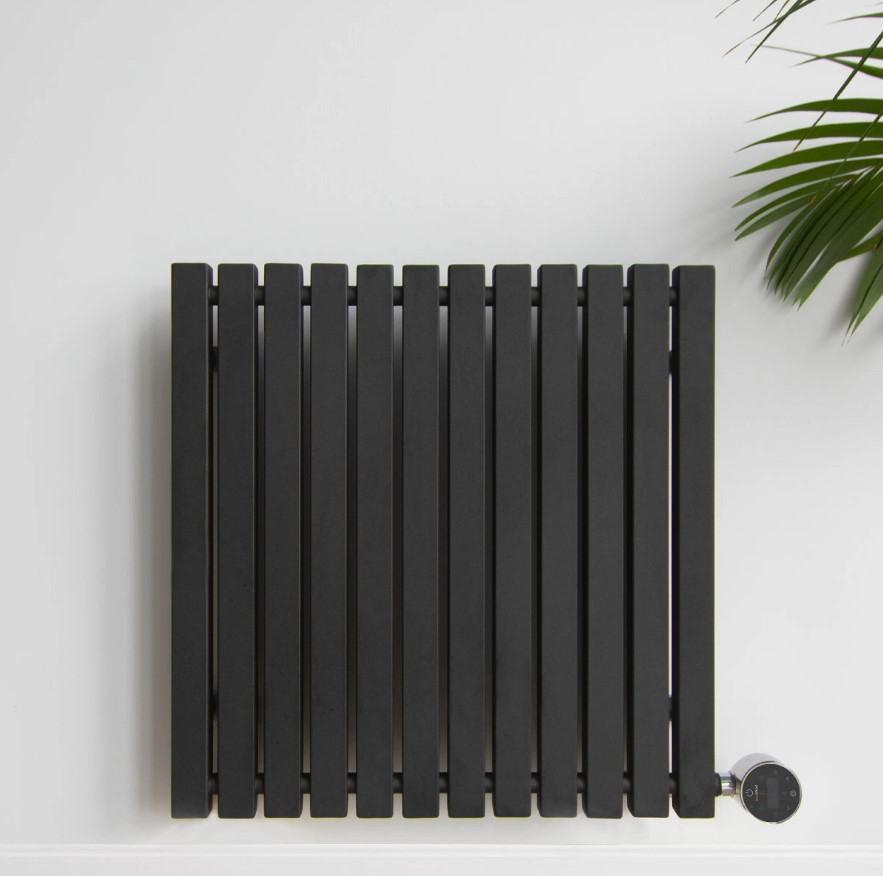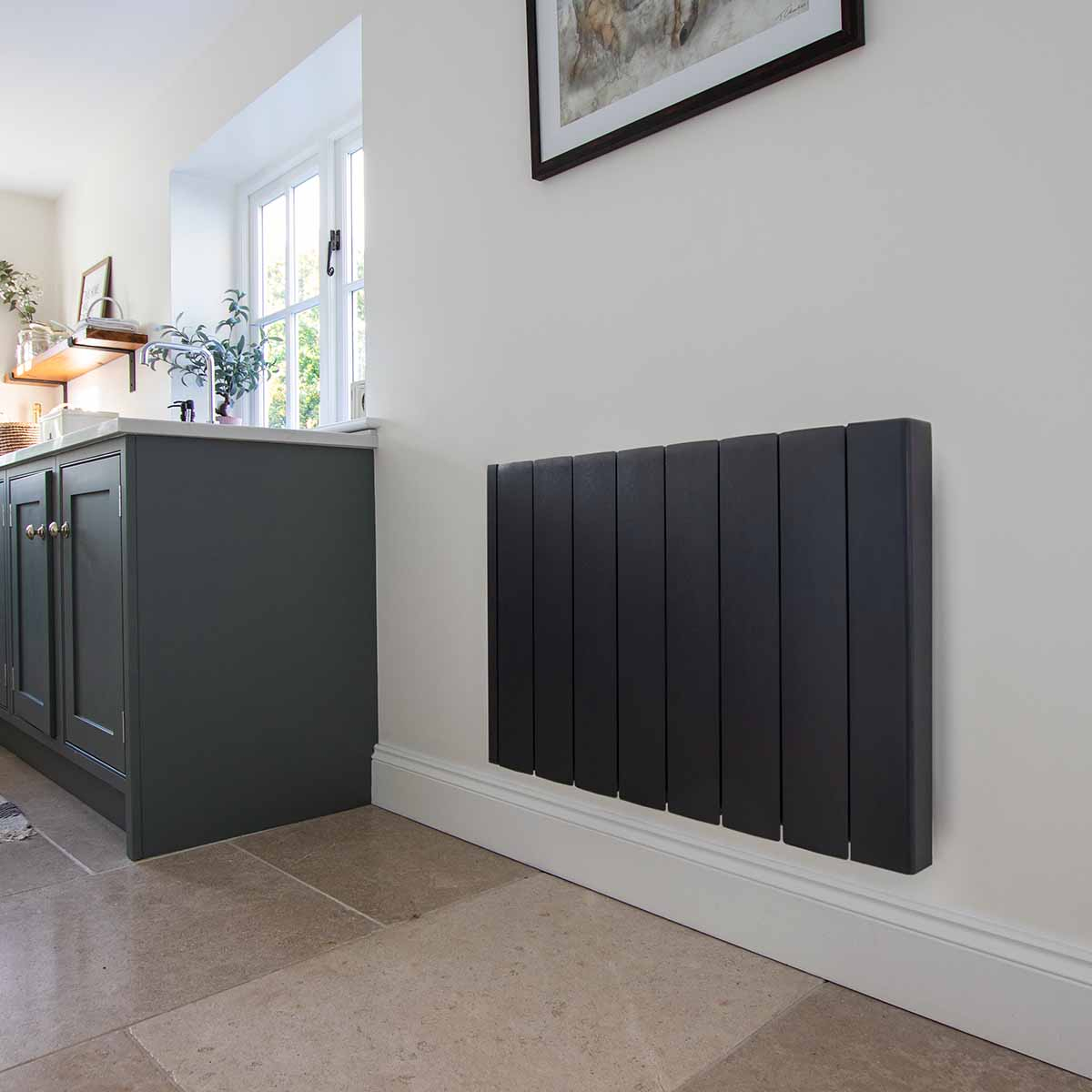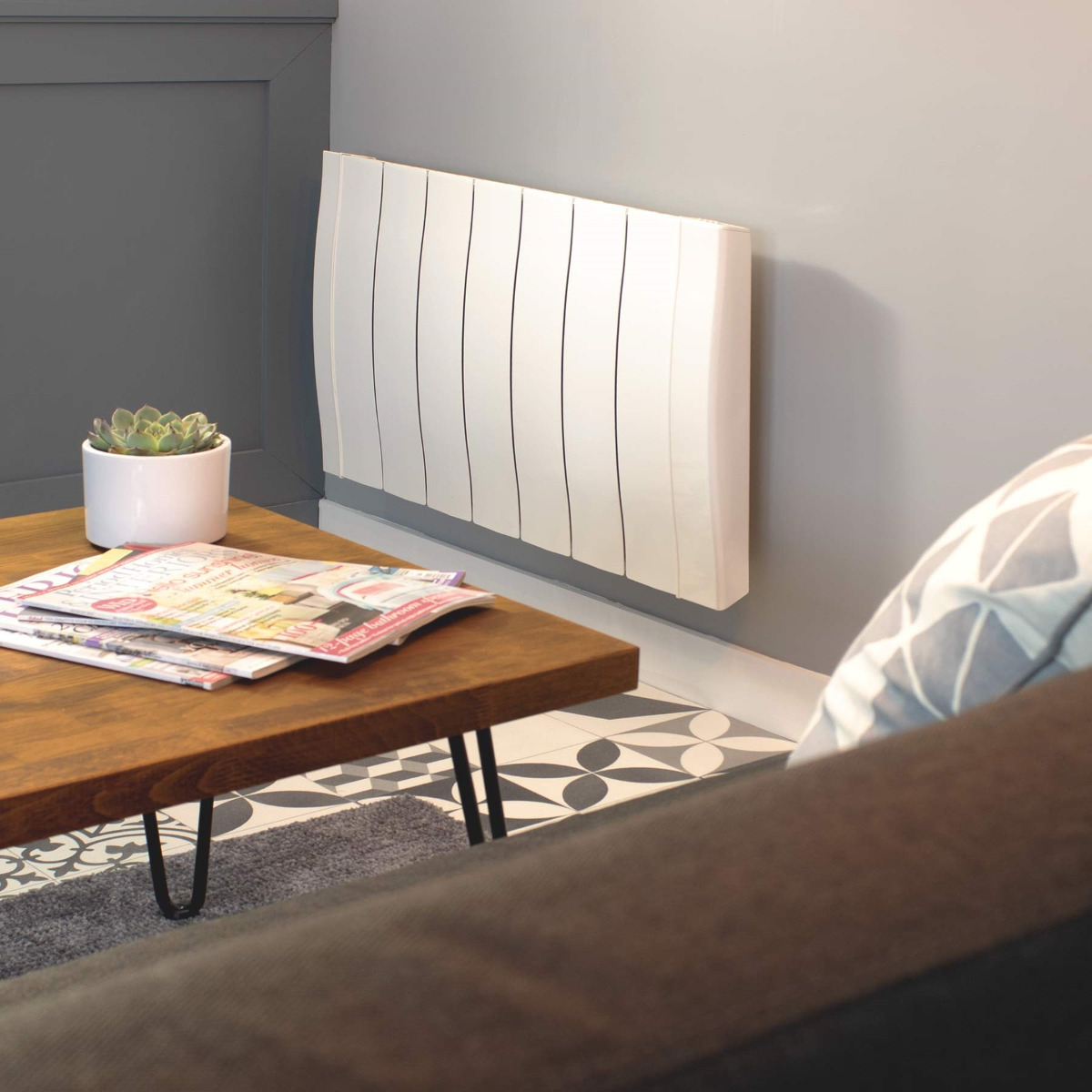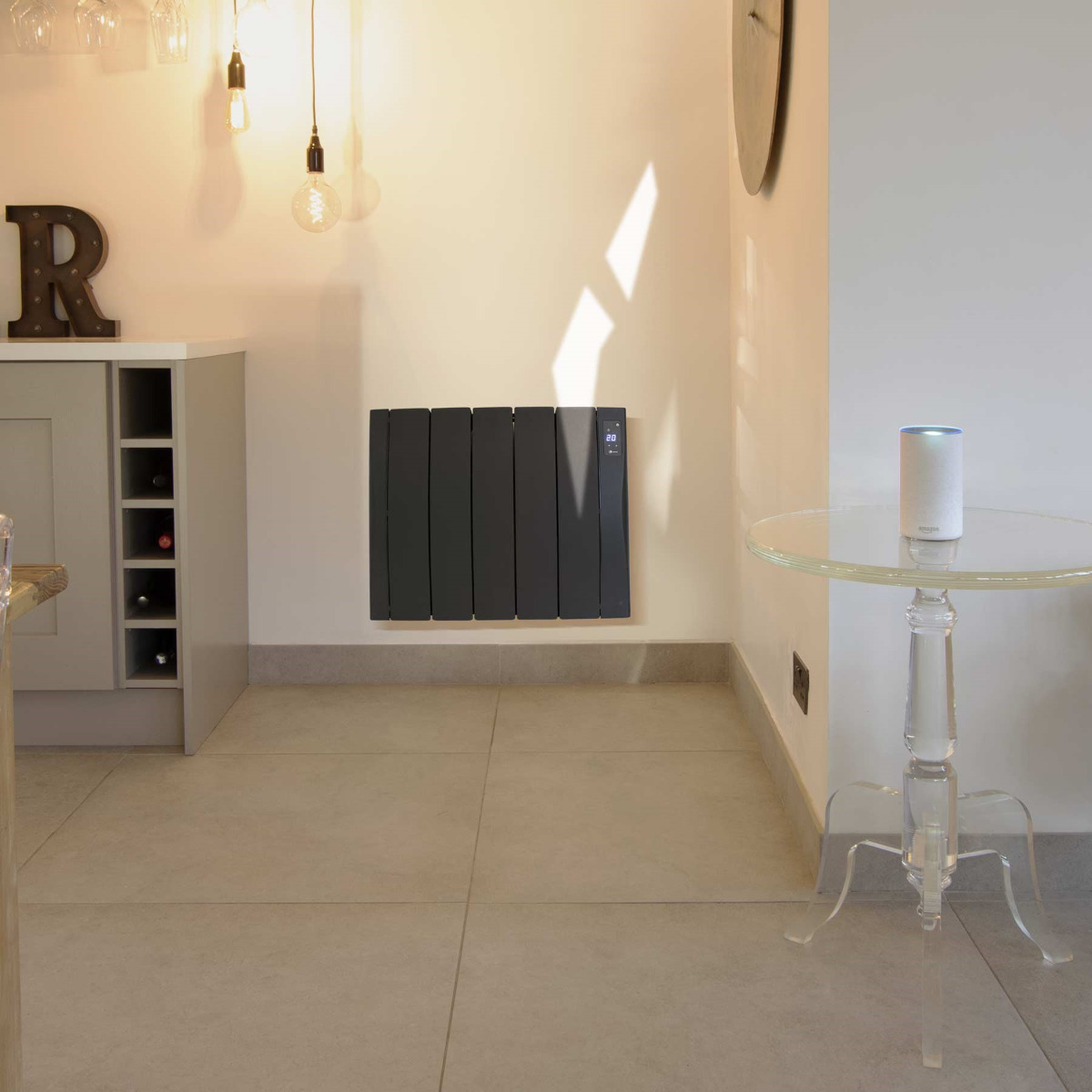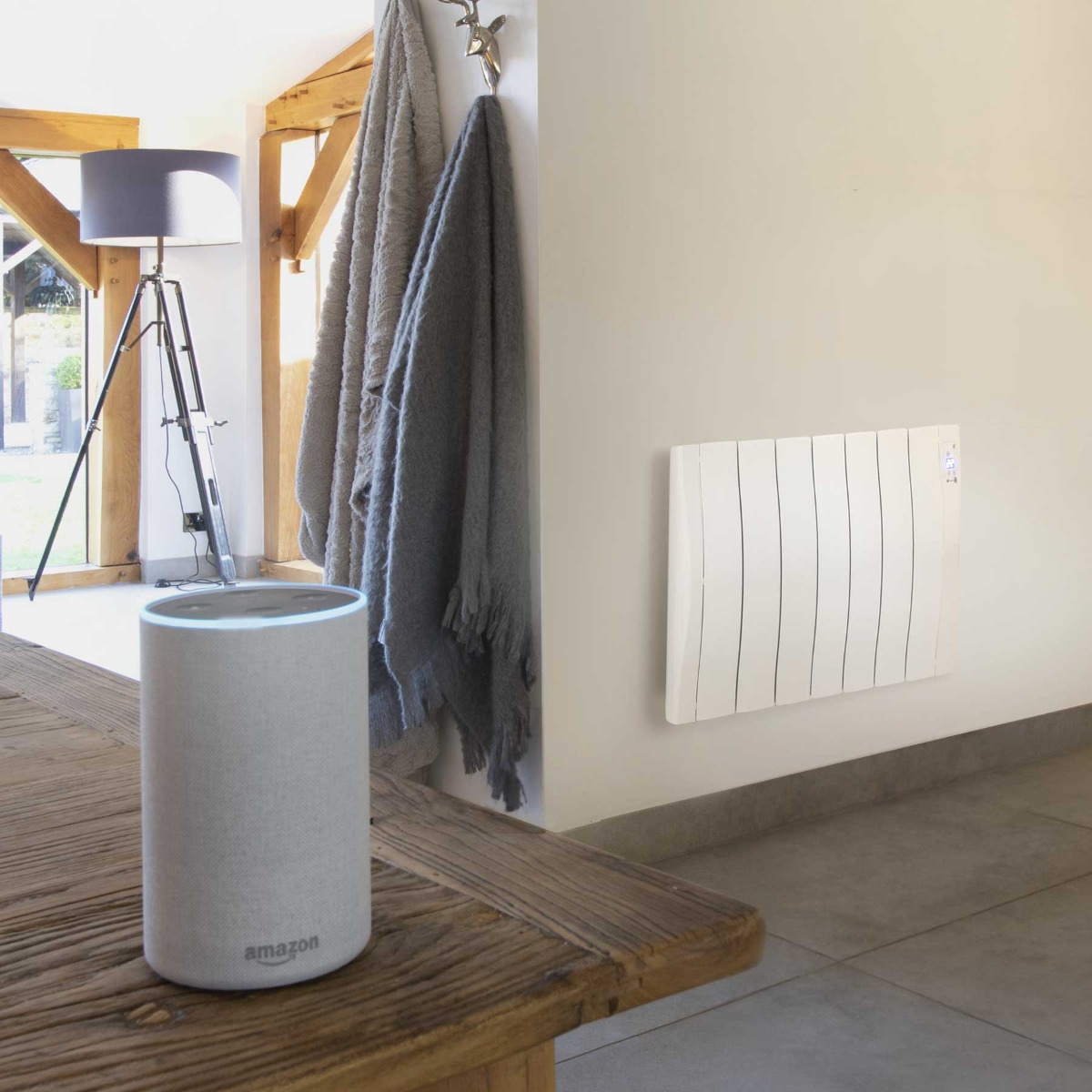

Last updated: March 2023
In theory, it’s a great idea to set your heating to turn on half an hour before you get up on a morning – but when you’re stirred awake early by the incessant clicking of the bedroom radiator, it’s hardly worth it. Central heating is notorious for the strange and persistent sounds it makes, whether from the water running through the pipes or the individual radiators themselves making loud clunking sounds. However, when it comes to electric, gone are the days of noisy heating. In fact, electric is one of the quietest systems on the market, mainly because it doesn’t rely on a larger network of pipes running through your entire property. But there’s more to it than that: we’re diving into the nitty gritty of what sounds are normal for electric radiators and the specific models we’d recommend for the quietest heating solution in your home.
Oil-filled electric radiators
How they work
Oil-filled, or thermal fluid radiators, are a versatile electric heating choice. Unlike gas, which relies on plumbing or pipes to heat the home, the thermodynamic fluid is contained entirely in the radiator body which spreads throughout the core to ensure that heat distributes evenly.
Due to its excellent heat-retentive properties, oil-filled radiators retain their warmth for longer, keeping the room temperature cosy even after the appliance has been switched off. A great way to reduce running costs as you still feel the benefits without using electricity.
Why oil-filled electric radiators might make noise
As the thermal oil expanses and begins to heat up, it can create noises such as crackling, popping, or clicking. This will occur when the radiator is first turned on, but it can also persist for a little while after as the oil needs time to warm. This is completely normal, and causes little nuisance compared to gas radiators which are prone to noise at every stage of the warm-up and cool-down process.
Oil-free electric radiators
How they work
Oil-free, or dry thermal electric radiators, are a popular heating choice because they tend to heat up faster than oil-free units, making them more responsive. Instead of relying on thermal fluid, they use ceramic stones or aluminium heating elements to provide warmth through a mix of convection and radiation – with no risk of them leaking.
Why oil-free electric radiators might make noise
As with most materials, the metal housing of these radiators will expand as it heats and then contract as it cools, which can cause the odd clunking sound. Although this can be common for dry thermal electric radiators, the occasional noise made by these appliances is nothing compared to the sounds you hear from other systems such as gas.
What we recommend
Correct installation
So, we’ve discovered that it’s completely normal for electric radiators to make some sort of noise every now and then, but are there any ways to offset these noises? Well, if you find that your radiator is perhaps a little too noisy, one way to combat this is by checking it has been installed correctly. Make sure the mounting brackets have been fitted properly following the instructional template provided. You can also reinstall the screws at the top of the brackets to prevent the aluminium from expanding too much. Check out one of our previous blogs for a more in-depth guide on troubleshooting persisting noises.
In this video, we’re answering pressing questions such as when to opt for professional hardwiring and how to DIY-install a wall mounted vs. freestanding electric radiator.
Silent thermostats
Most of the time, the only sound you’ll hear from an electric radiator will come from the thermostat. Fortunately, we have an excellent range of electric radiators that come with silent TRIAC thermostats, including the following from the Haverland range:
This type of thermostat uses cutting-edge technology to ensure your radiator turns on and off without disturbing you. Completely silent, it switches between modes without any pops or clicks, minimising the sounds coming from your heater, for a more seamless integration.
Ecostrad iQ Ceramic: our quietest electric radiator yet
Ecostrad have created a ground-breaking product, combining a host of innovative features into one sleek package. A dry thermal option with a heat-retentive ceramic stone core, the iQ Ceramic supplies efficient and lasting warmth that you can rely on. It also comes with a multitude of features that emphasise its effortless integration into any home.
Fitted with a silent TRIAC thermostat, the iQ Ceramic is the perfect addition for those wanting to leave the noisy, old-fashioned world of central heating behind. In fact, it comes with a range of functions that add to its quiet discreetness – from an intuitive motion sensor mode that silently adjusts your heating with no manual input, to a dimmable, touchscreen control panel that won’t disturb you when not in use. As an extra plus, it even comes with built-in WiFi compatibility and can be paired with Amazon Alexa or Google Home for handsfree voice control – proving that the iQ Ceramic is not only our quietest electric radiator, but the smartest too. Plus, it offers easy DIY installation with all fixtures included for wall-mounted fitting – simply follow the instructions provided and your iQ Ceramic will be up and running in no time, safely and soundlessly.
In this video, we're diving into everything the iQ Ceramic has to offer, including its flawless design, innovative heating technology, and fuss-free installation methods.
The future of electric radiators
The technology behind electric heating is constantly evolving, so while there’s not yet a completely silent radiator available on the market, electric remains one of the quietest solutions out there. As the UK continues to leave its reliance on fossil fuels behind, electric heating is only going to get more sophisticated in the years to come as we find new ways to minimise the sound created by electric radiators – whether by adding silent thermostats or improving controllability.
Electric Radiators Direct are leading the market with quality electric heating solutions. Browse our extensive selection or contact our fantastic sales team to find the perfect radiator for you.
Key learnings
- Oil-filled electric radiators may make noise when the thermal oil expands as it begins heating.
- Oil-free electric radiators may make noise when the metal housing expands as it heats and then contracts as it cools.
- To ensure your electric radiators are as quiet as possible, ensure they have been installed correctly and use a silent TRIAC thermostat.
- The iQ Ceramic is our quietest electric radiator yet. Fitted with a silent thermostat, it comes with a range of features to guarantee discreetness, including a motion sensor mode and touchscreen control panel.






